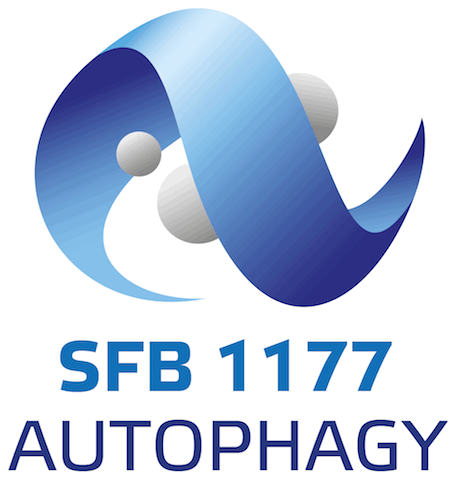
ABOUT US
Autophagy is a highly conserved catabolic process that serves as a quality control mechanism in cells by selectively removing damaged and superfluous organelles or other harmful cytosolic material, such as aggregated proteins or invaded bacteria. Under stress or energy restriction autophagy provides recycled building blocks for the synthesis of new cellular components. Three different types of autophagy can be distinguished: macroautophagy, microautophagy and chaperone-mediated autophagy. This SFB focuses on macroautophagy (hereafter referred to as autophagy), a multi-step cellular process by which cytosolic material is engulfed by a double-membrane, termed autophagosome after closure, which eventually fuses with a lysosome in order to eliminate its content. Autophagy plays a vital role in protecting against disease, but in recent years it became clear that the effect of autophagy is highly contextual. While it acts for instance as an anti-tumorigenic mechanism in healthy cells, cancer cells exploit the cytoprotective effect of autophagy to overcome stress conditions and nutrient limitation caused by rapid tumor growth. SFB 1177 aims at gaining a more detailed insight into the mechanistic details of autophagic pathways to better understand its role in disease development and eventually exploit this knowledge therapeutically.

Maike Windbergs
Pharmaceutical Technology, GU Frankfurt
„EMTHERA builds a perfect bridge between basic and translational sciences. A better understanding of molecular mechanisms will lead to discovery of novel targets and unique therapeutic strategies, thereby speeding up translation."
Speaker: Prof. Dr. Ivan dIKIC
Institute of Biochemistry II
GU Frankfurt
Theodor Stern Kai 7
60590 Frankfurt a. M.
Germany
Office: +49 69 6301-5652
dikic@biochem2.uni-frankfurt.de

VICE Speaker:
Prof. Dr. Christian Behl
Institute for Pathobiochemistry
University Medical Center of the Johannes Gutenberg University Mainz
Germany
Office: +6131 39-25890
cbehl@uni-mainz.de

